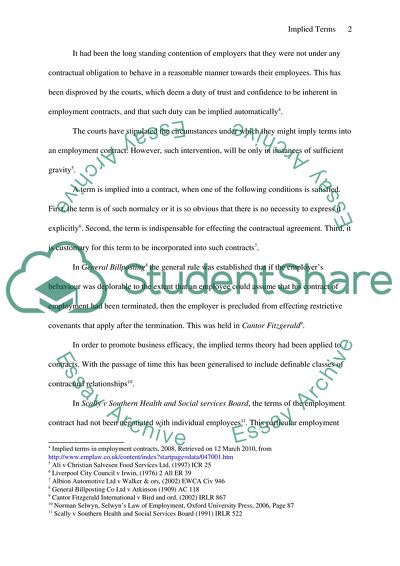Cite this document
(Implied Terms in Contracts Essay Example | Topics and Well Written Essays - 1750 words, n.d.)
Implied Terms in Contracts Essay Example | Topics and Well Written Essays - 1750 words. https://studentshare.org/law/1734150-information-on-attachment
Implied Terms in Contracts Essay Example | Topics and Well Written Essays - 1750 words. https://studentshare.org/law/1734150-information-on-attachment
(Implied Terms in Contracts Essay Example | Topics and Well Written Essays - 1750 Words)
Implied Terms in Contracts Essay Example | Topics and Well Written Essays - 1750 Words. https://studentshare.org/law/1734150-information-on-attachment.
Implied Terms in Contracts Essay Example | Topics and Well Written Essays - 1750 Words. https://studentshare.org/law/1734150-information-on-attachment.
“Implied Terms in Contracts Essay Example | Topics and Well Written Essays - 1750 Words”. https://studentshare.org/law/1734150-information-on-attachment.


